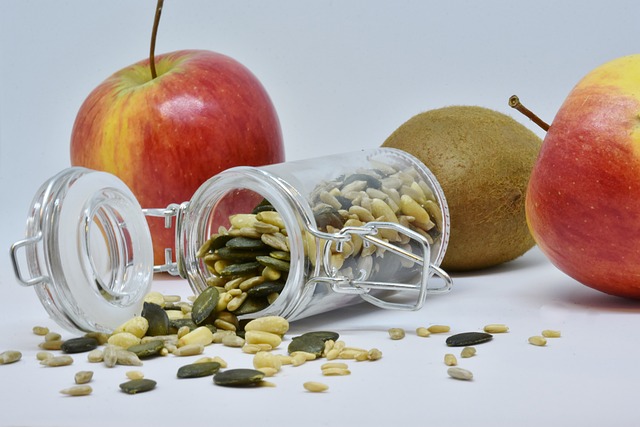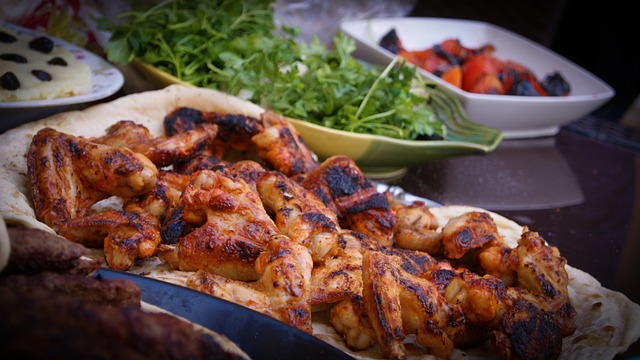The holy month of Ramadan, also known as Ramzan, is approaching, and Muslims around the world will be fasting yet again for a month. However, Muslims who have diabetes and who observe roza have to be all the more careful. And while it is always good to consult doctors, dietitians and nutritionists, here we share some important Ramadan fasting tips for diabetic people coming via practicing dietitians and nutritionists:
So, let’s start with what should you eat during non-fasting hours of Ramadan:
Plan your Meal for Sehri (Suhoor)
According to Yash, The Diet Chef, it is essential that you stock yourself up with vital nutrients, fluids and probiotics to avoid fatigue since there is a huge gap of 14 to 15 hours between Sehri and Iftar. Also, sugars can fluctuate giving you a hard time to function through the day.
So, here are some food habits for diabetic people by the Diet Chef that you can try while fasting to avoid any complications
1) Sehri is early morning, it’s essential you make sure to have something alkaline in nature like fruits, nuts, legumes and vegetables – not overly cooked, overly spiced or pickled.
2) Full of nutrition and known to improve insulin resistance, consuming power houses of energy like seeds of pumpkin, pomegranate, watermelon, cucumber etc can be a great addition in your sehri meal.
3) It’s essential to nourish your gut with lots of healthy moisture. To do that one could consume moist fruit like a banana with a pinch of pepper which makes sure the glycemic index is low yet the moisturization is done very well.

Also Read: If Sugar is So Bad For Us, Why is the Sugar in Fruit OK?
Plan your Meal for Iftar
Iftar is a beautiful meal arranged with delicate preparations. So, starting with the most traditional way of having dates, that is rich in nutrition and then balancing your acidic gut which has been expecting a meal after a very long time is the right way to start especially if you are a diabetic.
So, when we asked The Diet Chef about eating Iftar right for all our diabetic Muslims, he guided us with the following,
Iftar meals can be fancy and exotic at the same time, and so it’s essential for one to remember that, since a meal is being consumed after a long gap, it should be broken down, from easy humble dishes to a complicated one.
Having something in the lines of fruits and salads and then heading to roasted/tandoor/grilled delicacies is the way to go ahead. Breaking your fast with something heavy immediately after having dates could lead to acid reflux or might even lead to discomfort later leading to gastric issues.
Yes,
Replace high-fat proteins with lean options such as fish, tofu, and nuts which provide energy. Opt for low-fat dairy products like milk, and plain yogurt,. To sustain sugar levels till suhoor, have a glass of milk or some fruit before bedtime.
Stay hydrated by drinking plenty of water and sugar-free beverages throughout the evening, and avoid caffeinated drinks that increase thirst. Increase your fiber intake by adding salads to your meals and incorporating fresh fruits and vegetables with high water content.

And one of the most Ramadan fasting tips for diabetic people – While sweets are an important aspect of festivals, consume them in moderation and in small portions.
Also Read: All About Intermittent Fasting: A Detailed Guide For Beginners!!!
During Ramadan, diabetes can be managed well –
- By drinking enough water during the non-fasting hours
- By eating nutrient-dense foods
- By avoiding high-sugar and calorie-dense items.
Besides, managing your intermittent fasting, here are some other tips throughout Ramadan if you have diabetes:
Inform your physician that you want to fast.
Make sure your doctor is aware of your fasting plans. If you are taking medicine for diabetes or high blood pressure, your doctor may need to change your dosage during Ramadan because fasting affects blood sugar and blood pressure levels.
Keep hydrated.
During Sahr and Iftar, be sure to drink enough water. In order to reduce the amount of fluid lost throughout the day when the weather is warm during Ramadan, try to stay in a cool place and restrict your physical activity.
Check blood sugar levels
Before beginning the fast, keep a close eye on your blood sugar levels and control them as needed. Before fasting, those who take insulin should speak with their doctor. The doctor can suggest increasing the insulin dosage or changing the timing of the dose. The doctor may advise patients who are taking medicine to change the timing of their doses to after sunset.
Be careful not to overeat.
Iftar may be a big party with lots of food and lots of friends and relatives! Be aware that eating too much, even after a full day of fasting, can raise blood sugar levels.

Quickly Healthy Ramadan Fasting Tips for Diabetic People & Few Words of Caution:
- During your sehri meal, keep your spice, salt, and sugar intake to a minimum. Consuming salty foods can cause thirst later on as the water from the cells is withdrawn.
- Traditional sugar drinks and high-fat foods (mostly consumed during iftar) should be avoided.
- Eating extremely large Iftar meals (more than 1500 calories per meal), which could lead to weight gain and elevated blood sugar levels after eating should be avoided
- Consuming sugar-laden desserts after Iftar can increase blood sugar levels after meals
- Whether consumed at Iftar or between Iftar and Suhoor, heavy consumption of sugar and highly processed carbohydrates (bagels, paninis, etc.) can also result in severe hyperglycemia.
Also Read: Understanding Diabetes: What is Diabetes? Types, Causes, Symptoms, Management





